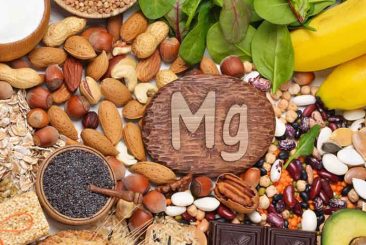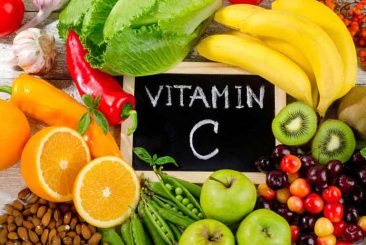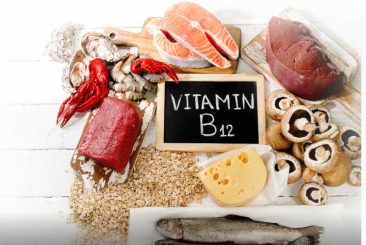Bone health is essential for overall well-being, as strong and resilient bones support mobility and quality of life. While calcium and vitamin D are well-known for their roles in bone health, other nutrients like magnesium, vitamin K, vitamin C, vitamin A, vitamin B12, zinc, copper, boron, vitamin E, and omega-3 fatty acids also play vital roles. These nutrients contribute to bone formation, mineralization, collagen synthesis, and overall bone metabolism. Maintaining a balanced diet that includes a variety of nutrient-rich foods is crucial for promoting optimal bone health and reducing the risk of conditions like osteoporosis. Consulting with healthcare professionals or registered dietitians can offer personalized guidance for maintaining strong bones throughout life.
Here are 10 essential nutrients beyond calcium and vitamin D that are important for bone health:
1. Magnesium:
Magnesium is a vital mineral essential for various physiological processes in the body, including bone health. It plays a crucial role in bone formation and maintenance by supporting the structural integrity of bones and aiding in the proper utilization of calcium. Magnesium also helps regulate calcium levels in the body, which is essential for muscle function and nerve transmission.

In the context of bone health, magnesium works synergistically with other nutrients like calcium and vitamin D to ensure optimal bone mineralization and strength. Ensuring an adequate intake of magnesium through a balanced diet rich in sources like leafy greens, nuts, seeds, whole grains, and legumes contributes to overall bone wellness and the prevention of bone-related issues.
2.Vitamin K:
Vitamin K is a fat-soluble vitamin that plays a critical role in various bodily functions, including bone health. There are two main forms of vitamin K: K1 (phylloquinone) and K2 (menaquinone). Vitamin K is essential for proper blood clotting, as it helps activate proteins that regulate clotting factors. Beyond its role in blood clotting, vitamin K is crucial for bone health.

It supports bone mineralization by aiding in the activation of osteocalcin, a protein that binds calcium to the bone matrix. This process is essential for maintaining bone strength and integrity. Adequate vitamin K intake, achieved through a balanced diet that includes sources like leafy greens, broccoli, Brussels sprouts, and fermented foods, contributes to both bone health and overall well-being.
3. Vitamin C:
Vitamin C, also known as ascorbic acid, is a water-soluble vitamin with a wide range of important roles in the body, including its contribution to bone health. Beyond its well-known role as an antioxidant that helps protect cells from damage, vitamin C is crucial for collagen synthesis. Collagen is a protein that provides the structural framework for bones, connective tissues, and skin.

In the context of bone health, vitamin C is essential for the formation and maintenance of bone tissue. It supports the production of osteoblasts, the cells responsible for bone formation, and helps ensure the strength and resilience of bones. A diet rich in vitamin C-containing foods such as citrus fruits, strawberries, bell peppers, and broccoli contributes to the overall health of bones and other body tissues.
4. Vitamin A:
Vitamin A is a fat-soluble vitamin that plays a vital role in various aspects of health, including bone health. It is essential for maintaining proper vision, immune function, and the health of skin and mucous membranes. Vitamin A also contributes to bone health through its involvement in bone remodeling and growth. It supports the activity of osteoblasts, which are bone-forming cells, and helps regulate bone resorption by osteoclasts, cells responsible for breaking down old bone tissue.

Vitamin A deficiency can lead to bone-related issues and impair bone development. Including sources of vitamin A in the diet, such as liver, eggs, dairy products, and colorful fruits and vegetables rich in beta-carotene (a precursor to vitamin A), supports bone health and overall well-being. Balancing vitamin A intake is important, as excessive intake from supplements can have adverse effects.
5. Vitamin B12:
Vitamin B12, also known as cobalamin, is a water-soluble vitamin that plays a crucial role in various bodily functions, including bone health. While often associated with energy metabolism and nerve function, vitamin B12 is also essential for bone health. It is involved in bone cell metabolism, promoting the growth and maintenance of bone tissue. Adequate levels of vitamin B12 are necessary for the production of osteoblasts, which are responsible for bone formation.

A deficiency in vitamin B12 can lead to bone-related issues, affecting bone density and strength. Including sources of vitamin B12 in the diet, such as meat, poultry, fish, dairy products, and fortified foods, supports bone health and overall well-being. For individuals at risk of deficiency, such as vegetarians or those with certain medical conditions, supplementing with vitamin B12 may be necessary to ensure optimal bone and overall health.
6. Zinc:
Zinc is an essential mineral that plays a crucial role in numerous physiological processes, including immune function, wound healing, and protein synthesis. In the context of bone health, zinc also contributes to maintaining strong and healthy bones. It is involved in bone formation and mineralization, aiding in the synthesis of collagen and promoting the activity of osteoblasts, which are responsible for building bone tissue.

Zinc deficiency can negatively impact bone health, leading to decreased bone mineral density and impaired bone growth. Including zinc-rich foods in the diet, such as meat, poultry, seafood, nuts, seeds, and legumes, supports proper bone development and maintenance. Balancing zinc intake is important, as excessive intake from supplements can interfere with the absorption of other minerals. Ensuring an adequate intake of zinc contributes to overall bone wellness and overall health.
7. Copper:
Copper is an essential trace mineral that plays a vital role in various physiological processes, including the formation of connective tissues and enzymes involved in energy production. Copper also contributes to bone health by supporting the development and maintenance of strong bones. It is a cofactor for enzymes that play a role in collagen synthesis, which is essential for the structural integrity of bones and connective tissues. Copper helps promote the formation of bone matrix and supports bone mineralization.

A deficiency in copper can lead to weakened bones and connective tissues. Including copper-rich foods in the diet, such as seafood, organ meats, whole grains, nuts, seeds, and legumes, contributes to proper bone development and overall well-being. As with other nutrients, achieving a balance in copper intake is important for optimal health.
8. Boron:
Boron is a trace mineral that plays a lesser known but important role in supporting bone health. It is involved in several processes that contribute to bone health, including promoting the metabolism of calcium, magnesium, and vitamin D. Boron also aids in the production of hormones like estrogen and testosterone, which play roles in bone health and maintenance.

It helps enhance the absorption of calcium and magnesium, which are crucial minerals for bone strength. Boron deficiency may lead to decreased bone density and increased risk of osteoporosis. Including boron-rich foods in the diet, such as fruits, vegetables, nuts, and legumes, can help support bone health and overall well-being. As with other nutrients, maintaining a balanced intake of boron is essential for optimal health.
9. Vitamin E:
Vitamin E is a fat-soluble antioxidant that plays a significant role in protecting cells from oxidative damage. While it is often associated with skin health and immune function, vitamin E also contributes to bone health through its antioxidant properties. Oxidative stress can negatively affect bone cells and the bone remodeling process, leading to bone loss and decreased bone strength.

Vitamin E helps counteract oxidative stress and supports bone health by preserving the integrity of bone cells and tissues. It is believed to play a role in modulating bone cell activity and maintaining the balance between bone formation and resorption. Including vitamin E-rich foods in the diet, such as nuts, seeds, vegetable oils, spinach, and fortified cereals, contributes to overall bone wellness and supports the body’s defense against oxidative damage. Balancing vitamin E intake is important, as excessive supplementation may have adverse effects.
10. Omega-3 Fatty Acids:
Omega-3 fatty acids are a group of polyunsaturated fats that are well-known for their cardiovascular benefits, but they also have implications for bone health. The two main types of omega-3 fatty acids are eicosapentaenoic acid (EPA) and docosahexaenoic acid (DHA), commonly found in fatty fish and certain plant sources like flaxseeds and walnuts. These fatty acids have anti-inflammatory properties that can benefit bone health by reducing chronic inflammation, which plays a role in bone loss and osteoporosis.

Omega-3s may also support bone mineral density by enhancing calcium absorption and improving bone cell function. Including sources of omega-3 fatty acids in the diet, along with other essential nutrients, contributes to the overall maintenance of strong and healthy bones. Balancing omega-3 intake with omega-6 fatty acids is important for optimal health, as both types of fatty acids play distinct roles in the body.
It’s important to note that a balanced and varied diet that includes a wide range of nutrient-rich foods is crucial for overall bone health. Incorporating foods rich in these essential nutrients can contribute to strong and resilient bones. If you’re concerned about your bone health or have specific dietary needs, consulting with a healthcare professional or registered dietitian can provide personalized guidance.
Disclaimer:
The information contained in this article is for educational and informational purposes only and is not intended as a health advice. We would ask you to consult a qualified professional or medical expert to gain additional knowledge before you choose to consume any product or perform any exercise.









